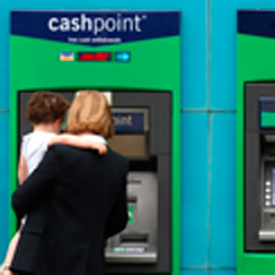What does Moody’s downgrade mean for the UK?
Channel 4 News Economics Editor Faisal Islam, explains what Moody’s downgrade of 12 UK institutions means for the public and the banks.
Faisal Islam answers the key questions on Moody’s downgrading of 12 UK finance firms.
What is the purpose of a credit rating?
“A credit rating is used by bond markets – the markets for corporate and government debt – to rate the credit-worthiness of the borrower. In the case of banks it is about the security and safety of lending from other banks and insurance companies, rather than customer deposits.
“Credit ratings are just opinions, and can often be misguided, wrong and useless. However international regulators have hard-wired credit ratings into the international financial system as part of the manner in which banks are regulated.
Why did Moody’s downgrade these 12 UK banks?
“Moody’s has been conducting an ongoing review of the likely support Britain’s government would give to its banks in the event of a crisis. This arises out of the “ringfencing” reforms suggested by the Independent Commission on Banking, chaired by Sir John Vickers. In general terms this means that the taxpayer if far less likely to step in to support a bank’s commercial “casino” activities as it had to with RBS in 2008. For that reason banks are perceived as being more risky for these high finance loans.
Read more: The Vicker’s report aims to “make it easier and less costly to resolve banks that get into trouble”.

Do Moody’s know something we don’t?
“No. They are taking a view that the Government will be less generous than Labour were in 2008.
What does the downgrade mean for the banks?
“It has sent their share prices down a bit, but many in the markets were anticipating this since the Vickers report was published last month. It probably means that their cost of raising funds will increase.
Will it affect customers of these 12 banks?
“It shouldn’t really. The same deposit guarantees for ordinary customers remain in place. It might mean slightly higher mortgage costs or slightly worse savings rates.
What is the implication of the change in government policy to move away from supporting the banks?
“The coalition government responded to public concern about taxpayer money being used to bail out rich bankers. What we as taxpayers gain from fewer future bailouts is likely, at least in part, to be paid for by more expensive banking.
Do you think the Bank of England and Mervyn King knew this was coming? Is there a link to the boost of quantitative easing (QE) on Thursday?
“No. The Treasury knew in general terms that this was coming, but not the date. The Bank of England say that QE was announced to boost the economy and to help inflation to hit target as it is expected to fall dramatically next year.
Why could RBS be at risk of needing another bailout?
“The Treasury denies it, but RBS was deemed close to needing new capital in the Summer European stress tests. Those tests did not include the scenario that a country like Greece would default. Behind-the-scenes reassessments of those numbers are believed to be going on. But so far it is speculation that RBS would need a further bailout.”